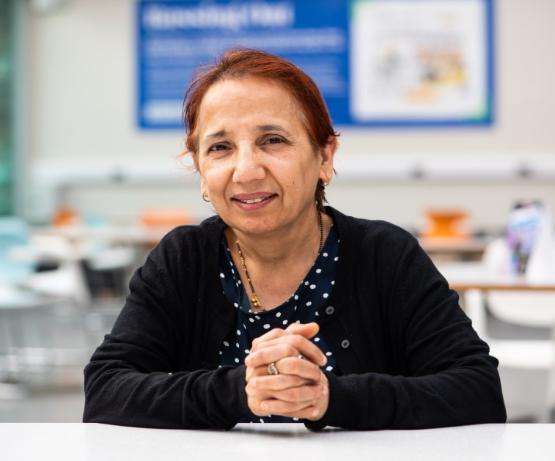Calling all researchers interested in ‘digital disruption’
A workshop that will focus on ‘digital disruption’ and sustainable development has called for contributions from researchers interested in digital technology.

The eighth annual Information and Communication Technology for Development North of England workshop (ICT4D) will be held in the University of Bradford on 4 July.
The ICT4D North of England 2024 annual workshop is being organised by key members of the Responsible FinTech Research Group, who are also academics in the Faculty of Management, Law & Social Sciences at the University of Bradford.
Its aims include looking at how digital technologies can improve lives by creating efficiencies, tackling poverty and promoting inclusivity.

Co-Organiser Associate Professor Rashmi Arora, pictured above, said: “It is an honour to host the workshop, which is open to anyone who has an interest in information and communications technology. This is about bringing researchers, particularly early career researchers and PhD students and businesses together to discuss issues that are likely to affect society in the near future.
“The ICT4D ICT4D-North (of England) network aims to foster intellectual exchange, research synergies and collaborations within our geographical region and make that research more visible and accessible to the general public. It is about promoting awareness of technology and its role in the digital transformation and how this can ultimately make a positive difference to people’s lives.”
It is about promoting awareness of technology and its role in the digital transformation and how this can ultimately make a positive difference to people’s lives
ICT4D North of England will take place on 4 July - the deadline for paper submissions is June 7. Registration is free.
For more information, please email organising committee members Dr Rashmi Arora [email protected] or Dr Marizah Minhat [email protected].
More about ICT4D North of England
ICT4D’s stated aims are closely aligned to the United Nations’ Sustainable Development Goals (SDGs).
Dr Arora said: “We are facing multiple challenges in our world today, including escalating conflicts and the threat that poses to world peace; we also have climate change posing an existential threat and in the midst of it, 'disruptive' technologies and emerging risks emanating from technology (for instance, most recently concerns regarding AI) that could themselves be the instigators of further threats.
“This can jeopardise the achievements of SDGs and impact particularly the vulnerable and the poor segment in low-income countries. This inclusive workshop will examine such cross-cutting issues and several more depending on the interests of participants. This workshop will be a cornerstone to diffuse interdisciplinary ideas and foster intellectual discourse, collaboration and contribution not limited to the proposed themes for the public interest.”
